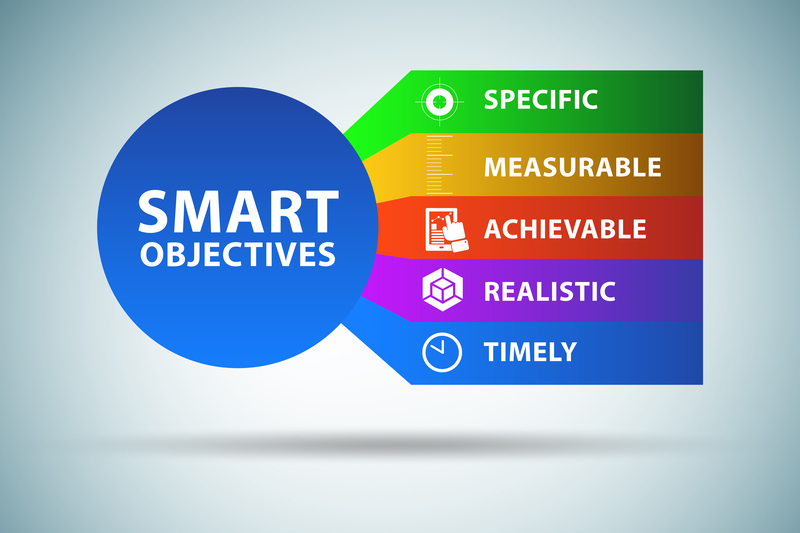
Achieving quality objectives is a goal when implementing and maintaining any ISO 9000 family quality management system (QMS). To achieve goals however, an organization must first clearly delineate what those objectives are. Establishing quality objectives is a requirement under the planning clause of ISO 9001:2015. However, to obtain the greatest value, care should be taken in this very important step.
Quality Objectives and Planning to Achieve Them
The ISO 9001 standard requires that established objectives should be consistent with an organization’s quality policy, that they be measurable, be applicable to an organization’s requirements, and be relevant to the conformity of products and services. They should also be monitored, communicated, and updated as required.
This approach can yield benefits for an organization and does indeed meet the requirements of ISO 9001, but by applying SMART objectives, an organization can provide a more effective framework for achieving continual improvement and customer satisfaction.
SMART Objectives
SMART Objectives were first defined by George Duran in 1981 in the November edition of Management Review to define a way of setting objectives for employee review. These goals are parametric and as such provide tractability and structure to elements that might otherwise be dealt with subjectively. The elements of the SMART approach are:
- S – Specific
- M – Measurable
- A – Achievable
- R – Relevant
- T – Time Based
Specific objectives are obtainable when reviews of an organization’s performance have been conducted on viable data. For example if there has been an issue with on time deliveries of products, then a proper response would be to attempt to better this performance. To be specific in this response it would be important to document the contributing factors that lead to the late deliveries and determine the resources or actions necessary to achieve improvement.
Measurable goals are an important component of SMART goals and indeed to any QMS. To effectively evaluate a situation, metrics must be applied that can set expectations and determine if objectives have been met. Because this is the basis of any QMS monitoring system it should therefore be a given, but it is an important item to check when establishing objectives.
Achievable goals also provide for better monitoring of an objective’s outcome. If, using the previous example, management sets an objective of zero late deliveries, then that goal may never be met. This will be a cause of frustration for all team members because it fails to take into account failures in the supply chain or facility closures due to acts of nature or pandemics.
Relevant goals take into considerations the ability of the organization to provide the necessary resources to an issue. If the economics of a quality situation prevent human resources from acquiring personnel with adequate training then expectations should be set for a degree of failure until adequate compensation can be budgeted.
Time Based goals are important in setting objectives in that they provide scheduling for ramping up performance. If a solution involves acquiring new technologies and training team members on using that technology, then realistic expectations should be established for completion. This gives all involved with the activity, its monitoring, and review a benchmark by which achievement of the objective can be based on.
Cashing in on Opportunities
When establishing objectives, every challenge is an opportunity to achieve excellence. Organizations that strive for continuous improvement will perform more efficiently and remain competitive. This improvement can be made more viable and measurable if objectives are clearly researched and defined.
To adequately research causes and effective corrective measures it is important to engage an organization at all levels because front-line workers can often provide a more granular perspective than an organization’s managers and senior leaders. By affording all team members the opportunity to provide feedback, an organization can nurture a culture of continuous improvement that will provide results.
CVG Strategy Experts
Our Exemplar Global Lead Auditor Consultants can help you with implementing a quality management system, which will include a risks and opportunities procedure. CVG Strategy has prepared, trained and implemented quality management systems for manufacturing companies in many business sectors.
Our quality strategy allows clients new to Quality Management Systems to rapidly implement a tailored system, because everything we do as consultants is processed based. Our Quality Experts have experience with ISO9001:2015, AS9100D, ISO 13485:2016, ISO 27001:2013 and Association of American Railroads (AAR) M-1003 and can readily deliver compliant procedures and work instructions.
We can provide expertise coupled with an outside perspective to assist you in tailoring a QMS that fits your organization’s specific requirements. We have assisted organizations in establishing programs in a variety of quality management systems including ISO 27001, ISO 13485, ISO 14971, AS9100, and ISO 9001.
CVG Strategy is a consultancy offering coaching, mentoring, training and program development focused on areas including Business Process Improvement, ITAR and Export Compliance, Cyber Security and Product Test and Evaluation.


